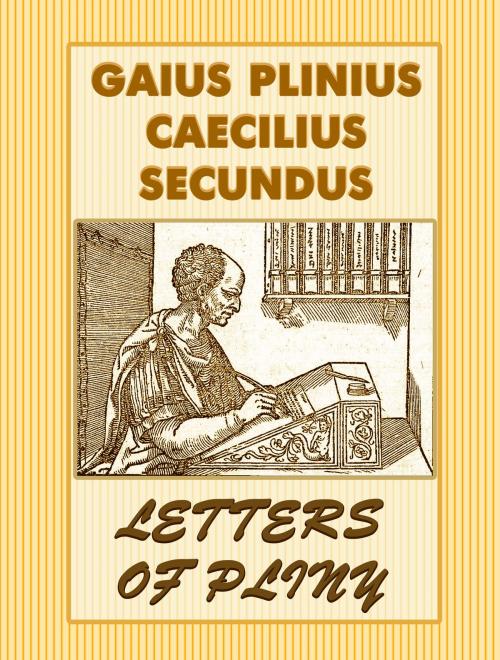| Author: | Gaius Plinius Caecilius Secundus | ISBN: | 1230000412773 |
| Publisher: | Media Galaxy | Publication: | May 8, 2015 |
| Imprint: | Language: | English |
| Author: | Gaius Plinius Caecilius Secundus |
| ISBN: | 1230000412773 |
| Publisher: | Media Galaxy |
| Publication: | May 8, 2015 |
| Imprint: | |
| Language: | English |
Gaius Plinius Caecilius Secundus, usually known as Pliny the Younger was one of the most successful pleaders of his time. He was brought up by his uncle, Plinius the Elder, and was well-educated. When he was young he served as a military tribune, but in the end he decided that the life of a soldier wasn't a proper fate for him. So he started his career as a politician and eventually he became a consul under the reign of emperor Trajan. Plinius was a great orator who inheritated Cicero's style. He also wrote poems and plays, although they are not realy famous. This book is the collection of Plinius' letters. They were arranged by himself and represent a perfect example of the epistolary genre. They may be found interesting not only for those who study the ancient history but for a wide range of readers as they portray the atmosphere of ancient Rome and its day-to-day life. In his letters to Trajan Plinius also mentions christians and tells about their rebellous spirit an their rejection to obey to the Roman Emperor.
Gaius Plinius Caecilius Secundus, usually known as Pliny the Younger was one of the most successful pleaders of his time. He was brought up by his uncle, Plinius the Elder, and was well-educated. When he was young he served as a military tribune, but in the end he decided that the life of a soldier wasn't a proper fate for him. So he started his career as a politician and eventually he became a consul under the reign of emperor Trajan. Plinius was a great orator who inheritated Cicero's style. He also wrote poems and plays, although they are not realy famous. This book is the collection of Plinius' letters. They were arranged by himself and represent a perfect example of the epistolary genre. They may be found interesting not only for those who study the ancient history but for a wide range of readers as they portray the atmosphere of ancient Rome and its day-to-day life. In his letters to Trajan Plinius also mentions christians and tells about their rebellous spirit an their rejection to obey to the Roman Emperor.















